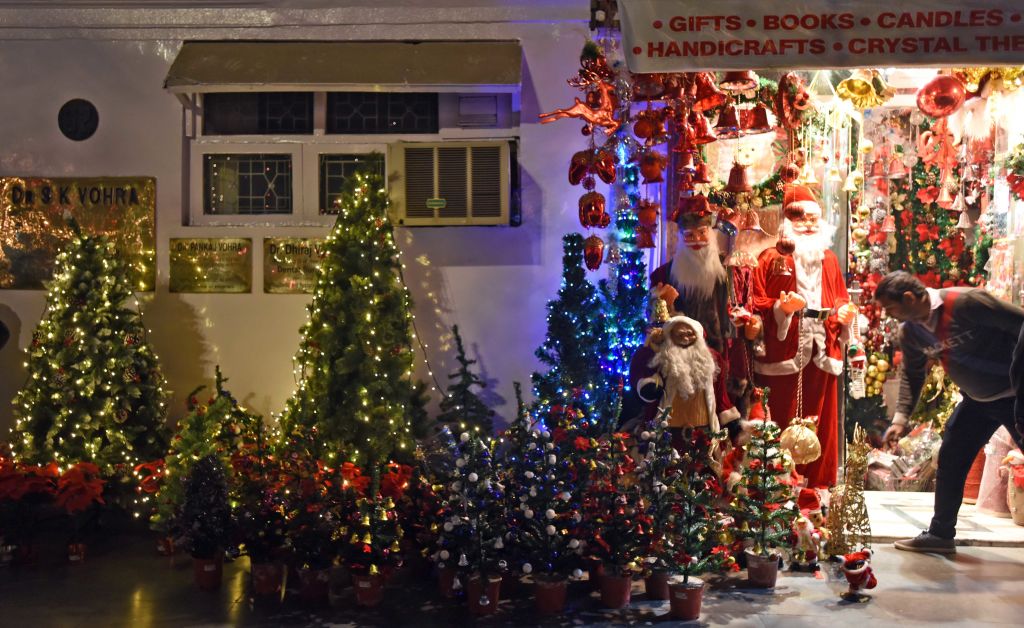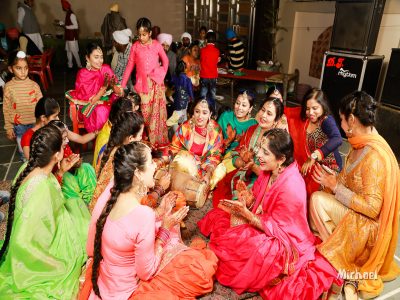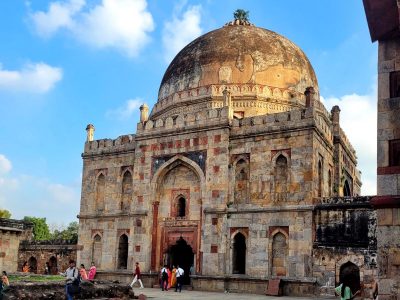Delhi is a huge metropolis where one part of the city is unaffected by the happenings in the other, making it a study in contrasts
Delhi is a humongous metropolis and it’s possible that one part of the city is completely oblivious even to major happenings in some other parts of the city. There are many children who know there’s a river that runs across the city but have never seen it. And there are adults who are blissfully unaware of the farmer protest outside of Delhi that has shaken the government of the day.
This simple fact comes across clearly when walking in a posh South Delhi market—say, Khan Market. Prime Minister Narendra Modi had mocked the elite adversaries by coining a term for them—the Khan Market Gang. Irrespective of their political leanings, or world view, or age group they belong to, shoppers here can be seen walking casually through the lanes and by-lanes of the market, preoccupied with Christmas shopping. The farmers’ protest is not on their minds, though they cannot be oblivious of the fact that it has been going on for weeks now.
Watching some of the shoppers at various eateries, cafes or shops for Christmas decorations, the outsider would be amazed that people were ready to spend so much money for so little. And these were not expats trying to recreate Christmas festivities here in Delhi. There were Indians who are hooked on the western way of life.
Before I get on to describe this phenomenon in greater detail, a clarification is imperative: it’s not a judgement but a mere description. And that there’s nothing wrong with celebrating Christmas. People from all religious backgrounds, not just Christians, were busy buying decorations—which is what a syncretic society should look like. It almost felt like a mid-winter Diwali, with Indian sweets being duly replaced by rum cake. Christmas trees, fake and real, could set you back by anything between Rs 1,500 and Rs 20,000. There was a large variety of Santa Claus puppets available, some were larger than life and motorised so could dance—shaking and swirling—while singing carols. They cost around Rs 50,000.
One of the purchasers of this puppet was the wife of a secretary to the Government of India, 55 years of age, who took early retirement from her job. Hindu by faith, was seen shopping with her married daughter. She bought the dancing-singing Santa for her granddaughter. She was acutely aware of the frightful price but was nevertheless eager to buy.

“You can spend an enormous amount of money for so little,” she said—without betraying whether she was happy or sad about it. She justified this splurge, apart from the fact that she could conveniently afford it, by saying, “To spend a lot is good for the economy, cash flow arrests recessionary tendencies.”
A lesson in economics was welcome but when she was asked about the protesting farmers, she was rather dismissive, “It’s a political gimmick. Change is always for the good. There will always be people who will oppose the change.” No big deal, according to her.
She was reminded that these people are also farmers and India is still primarily an agrarian economy, and they–the farmers—are the main stakeholders. The government is supposed to take them into confidence before taking crucial steps that will affect their livelihood, and at a macro level, there are real fears that will compromise the food security of the nation. “It’s always good to look at the positive side of the picture. Why are we always bogged down by a doomsday scenario? Look around you—do you see any shortages or threats to food security?”
Not in Khan Market, certainly. Not if you have just spent Rs 10,000 to buy three rum cakes—two pounds each—to be gifted away. In fact, given the mushroom growth of weight management clinics, one may be tempted to think there’s too much of binge eating around festivals.
There were others who were blissfully unaware of the farmer protests. Like the 37- year-old garments exporter, an alumnus of Modern School, who was shopping with two of his female schoolmates. Attired in blue tight jeans, red sneakers with a thick white sole, a puffy red jacket, his chubby cheeks were red in the sun. Fairly loquacious, he asked in surprise, “The protests have not ended?”
After a considered pause, he issued an advisory: “This is the best time of the year. I love winters. They should go back home and celebrate Christmas—New Year and hopefully, 2021 will be better.” He further explained that the farmers should know “Covid-19 is the real danger, and they are putting themselves and the rest of us at risk by assembling in such large numbers. Come on! When will people learn to see the larger picture?” he complained.

He spent a good part of the afternoon getting tipsy in one of the expensive bars in the middle lane of the market with his friends. That’s one activity that helps people appreciate the larger picture.
The parking lot is managed by a bunch of Muslim men, one of whom lost a family member in Delhi riots earlier this year. He doesn’t want to talk about it. He cannot afford to be out of a job and he has to provide for those who are still alive. The old-timers and the frequenters of Khan Market know them well, and they take extra care to park the regulars’ cars at a convenient spot. They are adequately tipped for their services.
Hafiz (not the name he is known by here) is one of them, and explains with wonderment, “I make more money during the Christmas-New Year week (in terms of the special tip) than Diwali; Eid is a normal day.”
Hafiz is from Uttar Pradesh and his father is a farmer. “I came to Delhi with my uncle when I was eight years old because farming didn’t remain a viable source of livelihood,” he explains in Hindi. “My family gave in meekly and became urban labourers…I’m glad some farmers are protesting for their rights…they feed the nation.”
Soon he was helping a lady load a big Christmas tree in the back of a huge SUV. Shopping bags were neatly stashed on the back seat. She drove away after handing Hafiz a 500-rupee note. “See, Christmas pays,” he said with a sparkle in his eyes.





